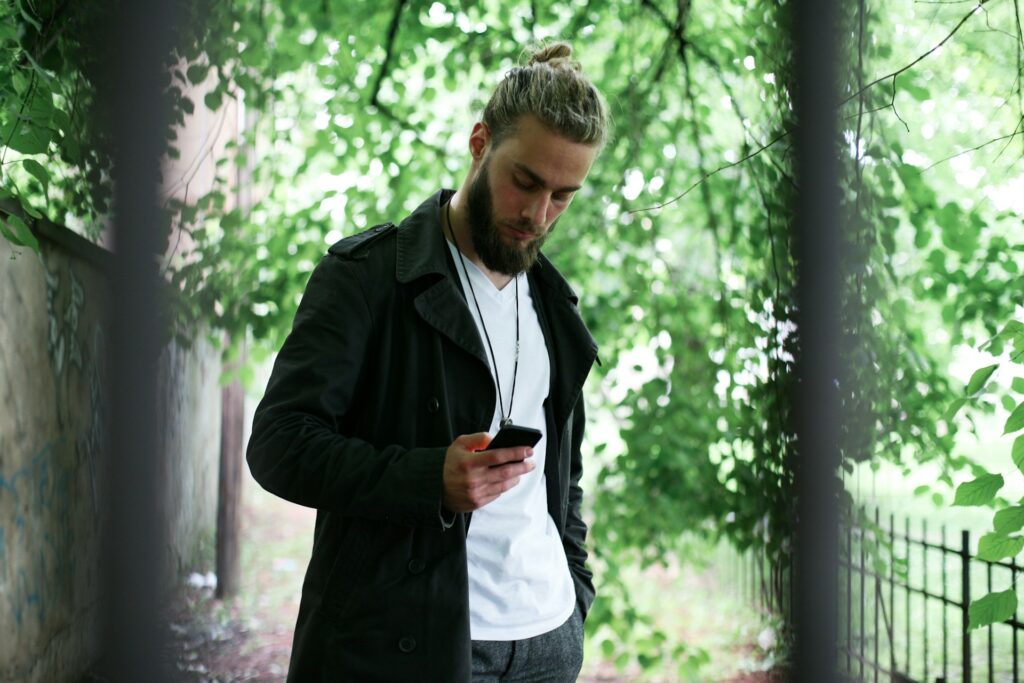There’s a reason so many people walk around with a version of themselves that’s edited, filtered, or toned down.

Being real—as in, properly real—can feel risky and really scary. However, hiding who you truly are comes at a cost, and that intense craving to be seen doesn’t go away. Here are some of the most common reasons you might hold back, and a few simple ways to start showing up anyway. After all, they say authenticity is key, and that’s really true!
1. You were taught early on that your feelings were “too much.”

If you grew up being told to calm down, cheer up, or not be so dramatic, you might have learned to doubt your own emotional responses. Even as an adult, you might filter yourself out of habit, worrying that vulnerability makes you a burden. To start loosening that grip, try naming your feelings, even just to yourself. Giving them space doesn’t mean unleashing chaos. It just means recognising that your experience is valid, whether or not someone else understands it.
2. You’re afraid of being misunderstood.

Sometimes, the fear isn’t rejection—it’s being misread. When you’ve been interpreted wrongly before, it creates this pressure to overly explain or not bother trying at all. So you keep things vague or surface-level to stay safe. However, the truth is, being misunderstood is part of being seen. It doesn’t mean you failed—it means you showed up with honesty, even if it didn’t land perfectly. Start small. Clarity grows with practice, not perfection.
3. You’ve been laughed at for being sincere.

Opening up doesn’t always lead to warmth. Sometimes it leads to eye-rolls, jokes at your expense, or that weird silence where people don’t know how to respond. That sting stays, and it makes you wary next time. Of course, sincerity isn’t weakness—it’s courage. Try sharing something with someone who’s earned your trust, not just whoever happens to be around. Not everyone deserves front-row access to your heart.
4. You mistake survival mode for your personality.

If you’ve spent a long time being agreeable, adaptable, or “easy,” it might feel like that’s just who you are. Of course, sometimes, that version of you was built for safety, not authenticity. It’s a mask that kept the peace, not the full picture. Getting to know your real self takes time, and that’s okay. Start by noticing what excites you, irritates you, or drains you—those reactions are clues. They’re not selfish. They’re signals.
5. You’ve tied your identity to being liked.

It feels good to be liked. But if your whole sense of self depends on being agreeable, palatable, or approved of, then honesty starts to feel dangerous. What if people like the version of you that isn’t even real? The scary truth is that some people might not like the real you—and that’s still better than hiding forever. Start by letting your preferences and opinions show, even in small ways. The people meant for you won’t flinch.
6. You’re scared you’ll be seen as selfish.

When you’re used to being the helper, the fixer, or the “easy one,” sharing your actual needs might feel self-indulgent. You worry you’ll come across as dramatic, needy, or full of yourself for even wanting space to be heard. However, self-expression isn’t selfish. It’s how connection actually works. Letting yourself be seen doesn’t take anything from other people—it deepens the space between you. That’s not ego. That’s presence.
7. You don’t feel clear on who your “real self” even is.

It’s hard to express your truth if you’re not sure what that truth even looks like. Maybe you’ve spent so long performing different roles that you’ve lost touch with what feels natural. That’s not failure—it’s just a result of years of adaptation. Start noticing what feels easy and honest vs. what feels effortful and performative. The real you isn’t hidden behind a door; it’s scattered in all those tiny preferences and gut reactions you’ve been brushing aside.
8. You’ve been punished for honesty before.

If being honest in the past led to conflict, punishment, or shame, your nervous system might flag openness as unsafe. Even now, being truthful might trigger a fear response—tight chest, racing thoughts, an urge to retract. This reaction isn’t irrational. It’s self-protection. Start by validating it—“This feels risky because it once was.” Then try easing into honesty with someone who listens well. Safe people help rewire old fears.
9. You’ve learned to equate vulnerability with weakness.

If you’ve been in environments where people were mocked, dismissed, or ignored for being emotional, you might’ve decided that vulnerability makes you a target. Better to stay strong, stay neutral, stay out of view. Of course, real strength looks different. It looks like showing up anyway. Try letting one person see a sliver of what’s real. You don’t have to collapse into rawness—just drop the act a little and see what changes.
10. You’re worried people will think you’ve changed.

Sometimes the fear is: “What if they think I’m not who I used to be?” And the truth is, maybe you’re not. Maybe you’ve grown, softened, sharpened, rethought a few things. That doesn’t mean you’re fake. It means you’re alive. Start normalising change by talking about it. “I used to think X, but lately I’ve been more Y.” Owning your evolution invites other people to do the same. Plus, the ones who love you will meet you where you are now, not where you used to be.
11. You overthink how you’re coming across.

You second-guess your tone, your timing, your words. You edit as you speak. You replay conversations afterward to scan for signs of disapproval. It’s exhausting, and it keeps you from actually being in the moment. Try noticing when you’re slipping into that mental performance loop. Then gently interrupt it. “What do I actually want to say right now?” Your real voice might feel clunky at first, but that’s okay. Real things usually do.
12. You’ve learned to measure your worth by what you produce.

If your value has always been tied to your usefulness—what you do, fix, or provide—it might feel weird to just exist and be received. Sharing your thoughts or feelings might feel indulgent, like you haven’t “earned” that space. Of course, your worth isn’t conditional. You’re allowed to speak, even if you didn’t tick every box that day. You don’t need to be extraordinary to be heard. You’re enough just being human and honest.
13. You’re surrounded by people who aren’t doing the same.

If everyone around you keeps things surface-level, showing up authentically can feel like shouting into a void. It’s hard to be real when no one else is modelling it. You feel exposed while they stay safe behind small talk and detachment. However, someone has to go first. And your courage might be the thing that changes the tone. Even if they don’t match your depth, you’ll know you’re standing in your truth—and that always attracts better connection as time goes on.
14. You think there’s a “right way” to be real.

You might worry that if you’re not eloquent or poetic, your honesty doesn’t count. Or that being real has to look soft, graceful, or perfectly vulnerable. Of course, truth isn’t about style—it’s about alignment. Your real self doesn’t have to be profound. It can be messy, awkward, unsure. What matters is that it’s yours. Start by saying the thing you usually hold back. Even if it comes out clunky. Especially then.


